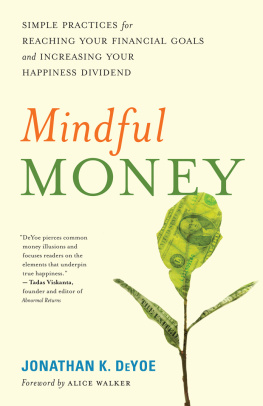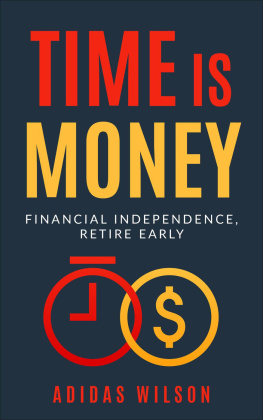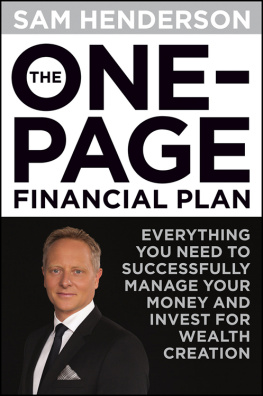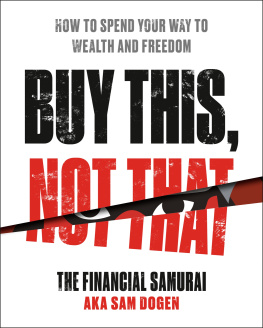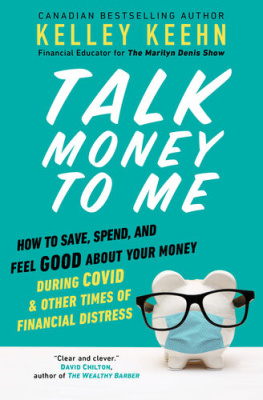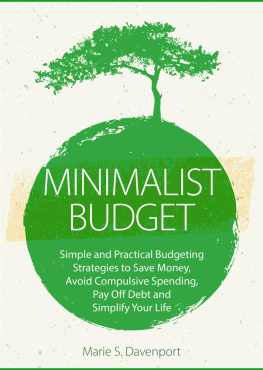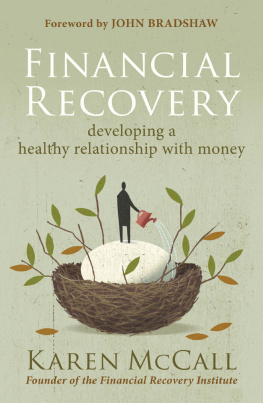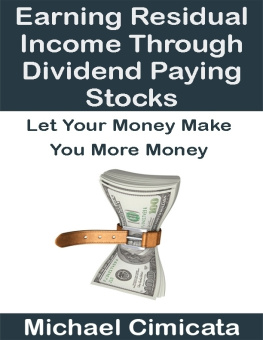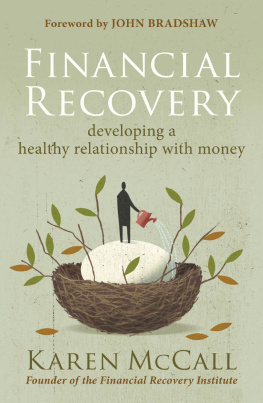Praise for Mindful Money
Mindful Money isnt just another personal finance book full of graphs and charts: its a frank talk about how money fits into the bigger goal of a satisfying life. This book makes you ask yourself, How much money do I really need to be happy? Once youve decided where youre going, Jonathan DeYoe will help you get there.
JENNIFER LEE, author of The Right-Brain Business Plan
The Beatles sang money cant buy me love. Nor can money buy you happiness. In Mindful Money, Jonathan K. DeYoe pierces common money illusions and focuses readers on the elements that underpin true happiness.
TADAS VISKANTA, founder and editor of Abnormal Returns
and author of Abnormal Returns: Winning Strategies
from the Frontlines of the Investment Blogosphere
In a world where total net wealth has reached record levels and yet contentment and joy remain way too subdued, many people are trying to unscramble the riddle of how to pursue wealth while achieving true happiness. Mindful Money offers a commonsense and inspirational framework that serves as a road map to happiness and offers a thoughtful reassessment of how money is just a tool, not the destination, of lifes greatest purpose. Just as important as financial planning is to wealth, having a plan to achieve happiness is equally essential to unlocking the most that life has to offer. Jonathan DeYoe delivers a structure rooted in a values-based financial plan that delivers a path toward something more than money: it plows a route to the harmony of wealth, purpose, meaning, and happiness.
BURT WHITE, managing director and chief investment officer
of LPL Financial
DeYoes Mindful Money teaches you to put wealth-building ideas into action. Well beyond a money handbook, it manages to interweave the pillars of money, investing, and wealth together with a path to happiness. If you read one money book this year, let it be Mindful Money.
BARBARA A. FRIEDBERG, MBA, MS, expert investor, educator,
website publisher, and author of Invest and Beat the Pros
If there were a smarter and better way to manage your money and your life, youd want to know right away. So open this book and start reading.
BOB SEAWRIGHT, chief investment officer of
Madison Avenue Securities and blogger, Above the Market



| New World Library 14 Pamaron Way Novato, California 94949 |
Copyright 2017 by Jonathan K. DeYoe
Foreword copyright 2017 by Alice Walker
All rights reserved. This book may not be reproduced in whole or in part, stored in a retrieval system, or transmitted in any form or by any means electronic, mechanical, or other without written permission from the publisher, except by a reviewer, who may quote brief passages in a review.
The material in this book is intended for educational purposes only. No expressed or implied guarantee of the effects of the use of the strategies discussed can be given nor liability taken. Any securities mentioned are for illustration purposes only and should not be taken as a buy or sell recommendation. You cannot invest directly in an index. Past performance is never a guarantee of future results. All investing involves risk, including possible loss of principal. The techniques and strategies described may not be suitable for your situation. Please consult a financial or tax professional when appropriate.
Text design by Megan Colman
Library of Congress Cataloging-in-Publication Data is available.
First printing, February 2017
ISBN 978-1-60868-436-6
Ebook ISBN 978-1-60868-437-3
Printed in Canada on 100% postconsumer-waste recycled paper

| New World Library is proud to be a Gold Certified Environmentally Responsible Publisher. Publisher certification awarded by Green Press Initiative. www.greenpressinitiative.org |
10 9 8 7 6 5 4 3 2 1
For Eli & Annie
It is our choices, Harry, that show what we truly are, far more than our abilities.
ALBUS DUMBLEDORE, in Harry Potter and the Chamber of Secrets
by J. K. ROWLING
CONTENTS
Counting My Eggs
I had my first paying job when I was seven. My two older brothers and I were hired to pick daffodils by the wife of the man who owned the land our parents worked. In this part of middle Georgia there are thousands of gigantic pecan trees, and it was under such trees that the three of us set to work. There were deep-yellow and pale-yellow daffodils (which our boss, in a strong Southern accent, referred to as jonquils) almost as far as the eye could see. To a child it seemed a fairyland, and I set to picking daffodils with delight. We were paid a nickel a bunch (our boss lady sold them in town for a quarter a bunch, which we didnt know and didnt care about), and I proved to be a speedy and efficient picker. I might have earned as much as half a dollar each day.
This went into a piggy bank that was shaped like an actual pig. My hardworking parents instilled in all their children, early on, that saving was to be a habit that would mean we could afford to buy presents for ourselves as well as for others at Christmas.
A few years later, when I wanted desperately to learn to play the piano, my mother decided to let me have all the eggs laid by our chickens. I sold these to a market in town and was able to pay the fifty cents per lesson my teacher required. In winter, though, the hens laid less, and eventually I had to give this up. Not until fifty years later would I circle back to this dream, hire a piano teacher, and learn to play six songs, among them James Weldon Johnsons Lift Evry Voice and Sing (commonly known as The Negro National Anthem) and Beethovens Ode to Joy.
Having learned these six songs, I promptly forgot how to play the piano; which is one of those mysterious happenings in life that makes you wonder. I dont even recall the names of the four other tunes I learned! But what I gained from the experience of paying fifty cents per lesson by selling eggs until the eggs ran out was that I needed to develop a sense of planning and some knowledge of the means and reliability of production.
One of my fathers biggest dreams was to own a car. When my older brothers grew skilled enough to keep one running, my father bought one. It was not the little red sports car of his dreams, but it was roomy and rugged, and he could get almost all of his large family inside it. In this car the two of us, when I was thirteen or so, rode off to his lodge meetings, where I was designated secretary and took notes, or minutes, as they were called. We also rode into town to visit the bank. If the family had accumulated even ten dollars above the months expenses, into the passbook of the Farmers & Merchants Bank it went.
The egg experiment taught me something that puts me at odds with the endless growth idea of classic capitalism and made me a budding socialist. I could see that the number of eggs required to fund my musical expansion was finite. I could also see that the eggs my passion for music was taking from my protein deficient family would in the end undermine the health and stability of all of us.
Next page
